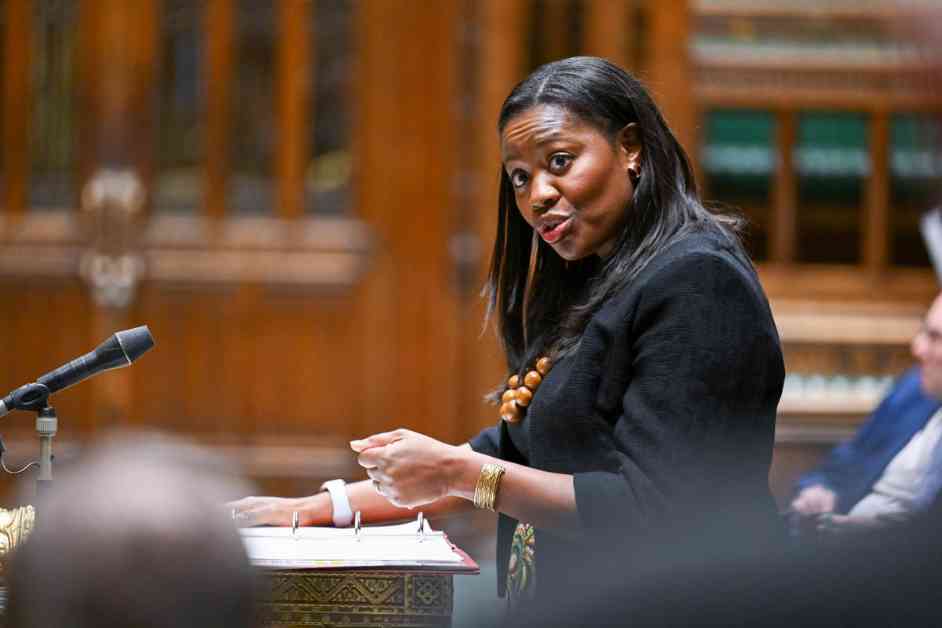The Evolution of Westminster: Decreasing Representation of Older Men and Upper Class – A Shift in Demographics
Women MPs have long decried the antiquated, misogynistic culture permeating Westminster, with the 2017 Pestminster scandal igniting a wave of sexual harassment allegations within the political sphere. However, a new dawn seems to be breaking in the halls of power following Labour’s recent electoral triumph, as fresh female faces assert that parliament is shedding its patriarchal skin and embracing a more inclusive future.
Changing Landscape of Power
Cross-party politicians interviewed by The Independent reveal a noticeable decline in the presence of older male MPs and a surge in the number of parliamentarians hailing from state schools, signaling a shift towards a more representative political landscape reflective of the broader populace. Staffers who witnessed the pre-election dynamics assert that a palpable transformation has swept through parliament in the aftermath of Labour’s victory, reshaping the cultural contours of the political arena.
Record Number of Women in Power
The recent electoral milestone saw a record-breaking 263 female members of parliament sworn in under a Labour government, constituting 40% of the total MPs—an uptick from the 34% representation in 2019. This surge in female presence has injected a fresh vibrancy into the traditionally male-dominated corridors of power, prompting seasoned MPs to acknowledge the winds of change blowing through Westminster.
Voices of Progress
Miatta Fahnbullen, Minister for Energy Consumers, lauds the newfound diversity permeating parliament, noting a palpable shift in the ambiance of the legislative chamber. Former chief executive of the New Economics Foundation, Fahnbullen expresses her pleasant surprise at the absence of racism and misogyny in her legislative journey, underscoring the evolving ethos of inclusivity shaping the political discourse.
Caroline Voaden, a Lib Dem MP, echoes Fahnbullen’s sentiments, highlighting the diminishing prevalence of old-school paradigms and the emergence of a fresh cohort of lawmakers ushering in a new era of parliamentary ethos. Voaden’s observations underscore the transformative impact of increased gender diversity on the dynamics of political decision-making.
A New Dawn for Inclusivity
As the political landscape undergoes a seismic transformation with the influx of a record number of female MPs, the reverberations of change are felt across party lines. The palpable sense of camaraderie and shared purpose among female lawmakers offers a glimpse into a more equitable and inclusive future, one where the voices of women resonate with newfound power and purpose within the hallowed halls of Westminster.
In conclusion, the evolving demographics of Westminster reflect a broader societal shift towards greater gender equality and diversity in positions of power, heralding a new chapter in the annals of political history. As the torchbearers of progress, these pioneering female MPs pave the way for a more inclusive and representative parliament, where the voices of all citizens find resonance and recognition in the corridors of power.












